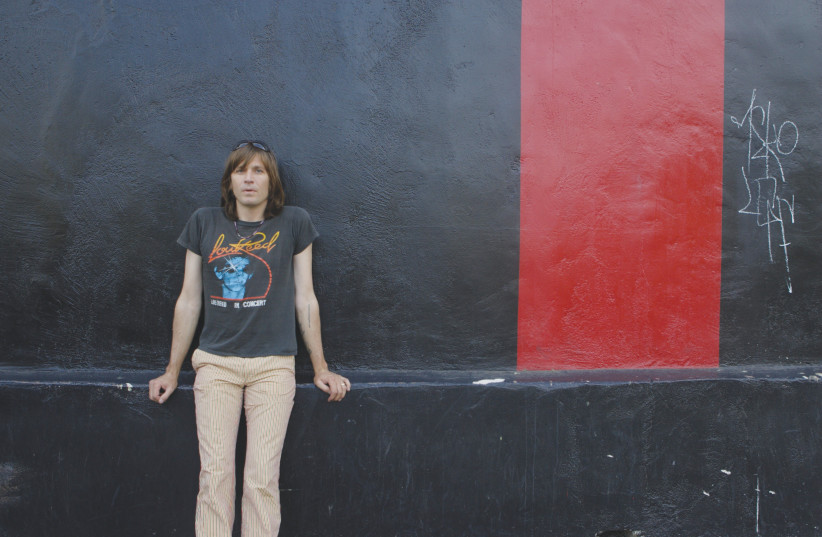Going to see the Lemonheads in concert is an act of faith.
Based on his track record, bandleader Evan Dando is an erratic artist – capable of brilliance, but also just as likely to call in an unfocused and uninspired performance.
Has-been is too harsh a word to describe the enigmatic songwriter, guitarist and singer who for a brief few years in the 1990s was the It poster boy of grungy power pop. But the years of personal struggles with drugs and descent to cult status significantly lowered the bar ahead of Dando’s first appearance in Israel on Saturday night.
It’s unlikely that many of the 700 or so people who showed up at the Barby Club in Tel Aviv to see him and the latest incarnation of The Lemonheads perform their landmark 1992 album It’s A Shame About Ray in its entirety thought they were going to witness a show for the ages. But, that’s what they got.
Dando emerged after a spunky and fun opening set by local rocker Ishay Berger, acoustic guitar in hand, and immediately launched into a 20-minute medley of countryish, quirky Lemonheads staples like “Outdoor Type” and “Being Around” that the adoring audience knew all the words to, along with a few well-placed covers like Richard Thompson’s “Dimming of the Day.” Dando’s voice, always one of his most attractive qualities along with his knack of writing insanely catchy songs, was rich and strong.

Entirely focused to the extent that he eschewed such conventions as saying “Hello Tel Aviv” or other generalities, he seemed intent on setting the record straight that he was still capable of excellence, despite the occasional cracking vocal or switching songs after a few seconds. Rather than detracting from the performance, those human frailties only made the performance more endearing and authentic. His still-long, scraggly hair covered his eyes, as he seemed to be in his own musical world, blocking out external elements.
When he plugged in and brought out the band for “the educational part of the show” as he said in one of his few comments to the adoring audience, the energy level exploded as one power pop gem organically flowed into another. With Dando’s electric guitar chops on full display supported by the brawn and finesse of Mikey Jones on drums and Farley Glavin on bass, the band was locked in to each other and with the jumping-up-and-down crowd.
The band even brought out their rarely performed amped-up cover of Simon & Garfunkel’s “Mrs. Robinson” (which seemed even to come as a surprise to drummer Jones.)
Dando went back to solo acoustic for another rat-a-tat mini-set that featured an exquisite cover of Elvis Costello’s “Man Out of Time.” Then the band returned for another 45 minutes with Dando calling out song audibles (mostly from the band’s post-Ray albums Come Feel The Lemonheads and Car Button Cloth) and the band having but a second to catch up to the band leader. It was exhausting. How could there be so many great songs, each song catchier and more forceful than the previous, from “It’s About Time” to “The Great Big No?” Dando made it look easy, like he was born to be onstage.
The two-hour performance’s most affecting moment was near the end of Dando’s opening acoustic set, when he went off mic to the front of the stage, knelt on one knee and began gently strumming the familiar chords to the Lemonhead’s biggest hit “Into Your Arms.”
Dando remained silent and the fans sang the song in a strong unison voice like a hymn:
“I know a place where I can go when I’m alone
Into your arms, into your arms I can go...
And if I should fall
I know, I won’t be alone”
They were singing to Dando and he was playing to them, each supporting the other. It wasn’t show business and it wasn’t entertainment. It was a moment of inclusion and redemption that confirms that second – and third and fourth – chances are underrated.
